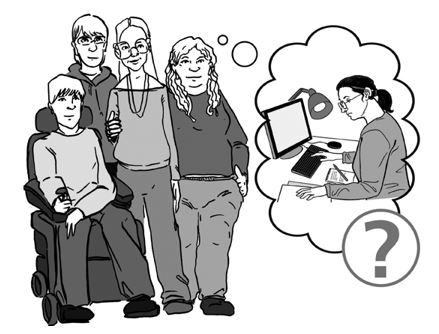A new approach to create inclusive jobs at services for people with learning disabilities – community job crafting – was reflected on at a recent event. Liz Oliver reports
The employment gap for people with learning disabilities is huge. It is estimated that just 5.9% of adults with a learning disability in England are in paid employment (NHS Digital, 2019).
It is well known that the exclusion of people with learning disabilities from paid employment is a problem, but what to do about it is less clear.
In October 2019, people with learning disabilities, researchers and practitioners came together in Leeds to reflect on a new approach to job design called community job crafting.
This is the outcome of a research project called Learning by Doing Together, which was funded by Disability Research on Independent Living and Learning (DRILL). The project was designed and conducted by the University of Leeds’ Centre for Employment Relations, Innovation and Change, human rights organisation Change and service provider KeyRing.
It uses methods of participatory action research and inclusive research to co-design jobs for people with learning disabilities in the delivery of learning disability services. People with learning disabilities took part at every level of the project.
The project team describe the process of making such new jobs as community Job crafting and they hope that other organisations will take it up.
The Leeds event was a great opportunity for the team to preview some of their new toolkits and to hear what people think about the potential of this form of job design.
Fostering inclusive environments
Community job crafting is not about putting people into posts – it addresses the more challenging feat of creating inclusive jobs and fostering inclusive environments.
The idea behind Learning by Doing Together came from the Our Voices, Our Choices, Our Freedom event run by Change in 2014, where 100 people with learning disabilities came together to talk about the abuse of power that happened in Winterbourne View.
A key message from the event was: “People with learning disabilities must be properly employed to work in care settings” (Change, 2014: 23). The idea is that this would address the power imbalances between people with learning disabilities and service provider organisations.
Designing new jobs brings with it an alertness to the wider context of services and service provision, the quality of existing jobs and the power dynamics.
When organisations think about employing people with learning disabilities, they often think about how they might need to change their recruitment and selection practices.
The first step is to design a job that fits well and brings out what people have to offer to an organisation. Participants at the Leeds event were asked some deceptively simple questions such as “what is a job?” and “who is a worker”?
Their reflections on these questions chimed with the thinking underpinning community job crafting – that jobs are not just a collection of tasks but are shaped by ideas about who workers are, how work is done and what is valuable. They reflected on how very few people with learning disabilities have paid jobs so their strengths are not always seen by employers and jobs very often do not fit them well.
Job crafting is a term used in academic literature to talk about the way workers change parts of their jobs. It describes people making changes to their tasks that also alters what work means to them and how it makes them feel about themselves (Wrzesniewski and Dutton, 2001). The team adapted it to describe the way they made a new job with service users. The collaboration made space to think differently about service users and about services.
Job crafting is usually done by one person but the project team added the word “community” because they formed a group of different people who worked together to design the job.
Towards the end of the event, everyone reflected on the afternoon. It had been designed to be open, inclusive and fun. The team were pleased when one participant noted that the activities gave people confidence and connected everyone.
Those taking part seemed to enjoy it, talking about thinking differently and questioning their preconceived ideas. People were keen to know more about community job crafting, particularly about how it works in practice. They were also keen to network and connect with each other. The team will be running more events to share other parts of their toolkits.
Dr Liz Oliver is a lecturer at the Centre for Employment Relations, Innovation and Change (CERIC) at Leeds University Business School
References
NHS Digital (2019) Measures from the Adult Social Care Outcomes Framework, England, 2018-19. https://tinyurl.com/yeoycugk Change (2014) Our Voices, Our Choices, Our Freedom. https://tinyurl.com/yerlw8wf Wrzesniewski A, Dutton JE (2001) Crafting a
job: Revisioning employees as active crafters of their work. Academy of Management Review. 26(2):180

